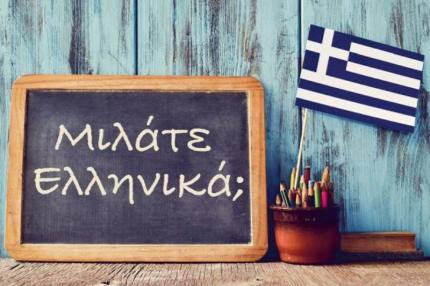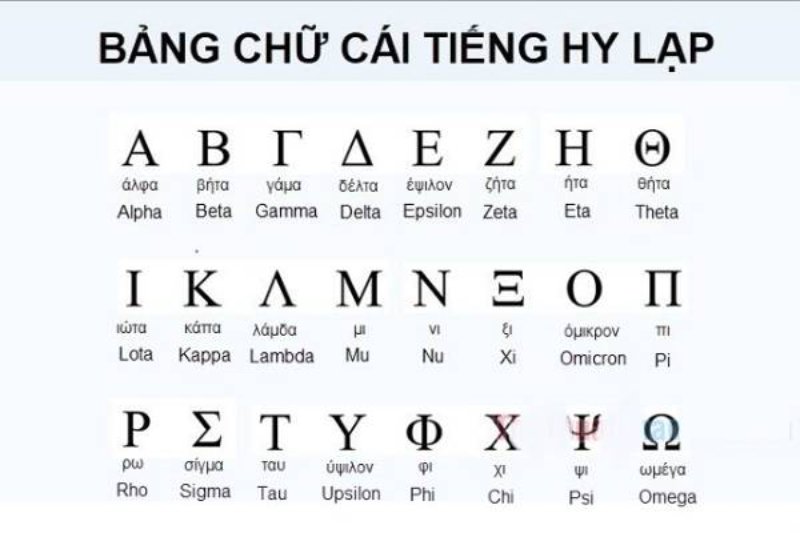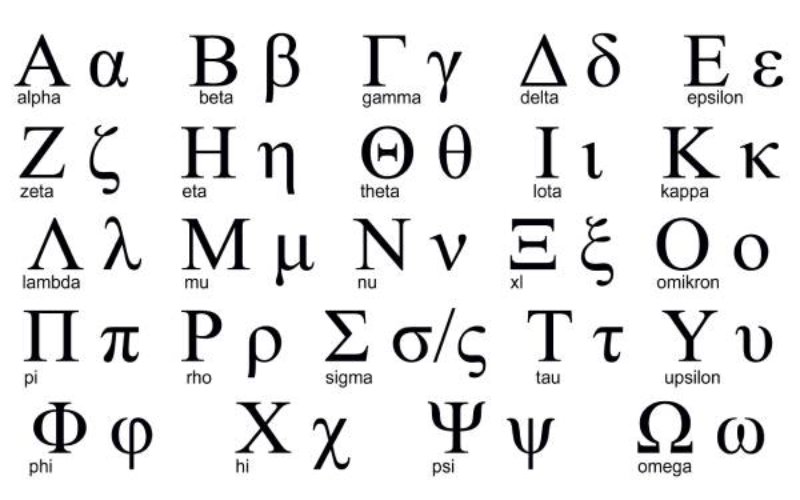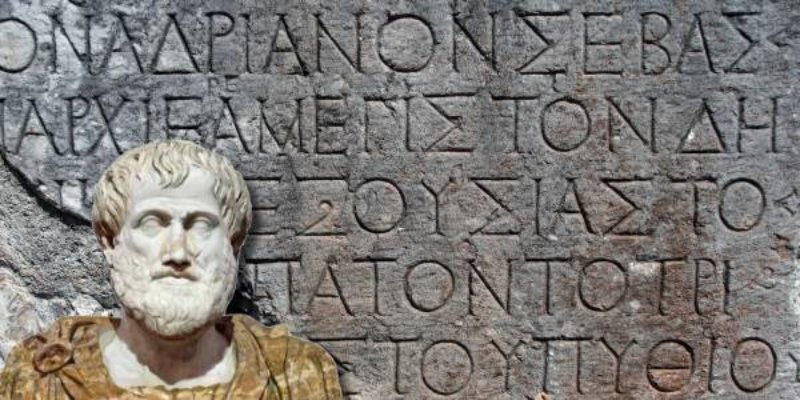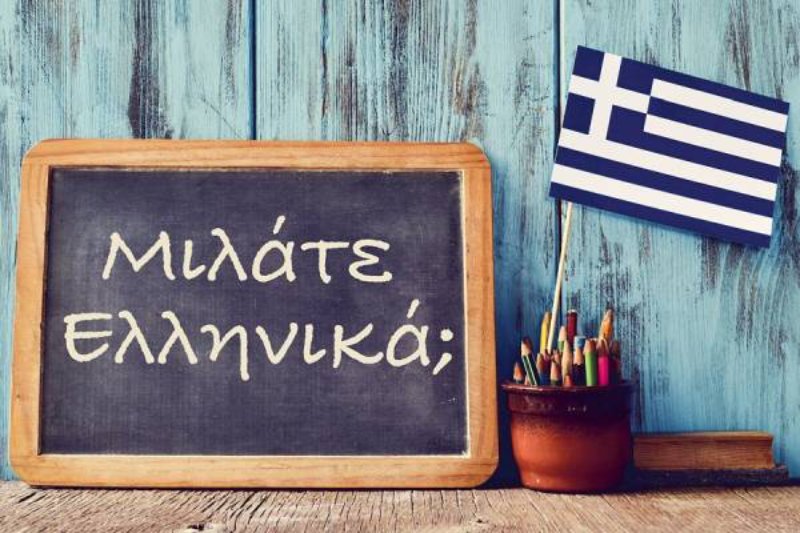Get free consultation
Fill out the form and we will contact you
Are you curious about what language Greece speaks? As a country rich in cultural traditions, Greece uses Modern Greek as its official language, carrying a strong historical legacy from ancient times. Let’s explore the Greek language below.
What language does Greece speak? The official language of Greece is Modern Greek, used in daily communication, education, and official documents. Greek belongs to the Indo-European language family and originates from Ancient Greek—the language of philosophers such as Socrates and Plato, as well as classical works like Homer’s Iliad and Odyssey. Today, approximately 99% of Greece’s population speaks Greek as their mother tongue.
The official language of Greece is Modern Greek
Modern Greek differs somewhat from Ancient Greek in grammar and vocabulary, but it still retains the unique Greek alphabet with 24 letters, such as Alpha (Α), Beta (Β), and Omega (Ω). This language is not only a means of communication but also a cultural bridge, reflecting the history and identity of the Greek people.
English is increasingly common in Greece, especially in major cities like Athens and Thessaloniki, as well as tourist destinations such as Santorini and Crete. According to a 2023 Eurobarometer survey, about 51% of Greeks can communicate in English, particularly among the younger generation and those working in tourism and hospitality. This makes it easier for foreigners to live, work, or travel in Greece without being fluent in Greek from the start. However, in rural areas or smaller islands, English is less commonly spoken, so knowing a few basic Greek phrases can be very helpful.
Greek has a rich historical development, going through several important stages:
The Greek language has a rich historical development
Ancient Greek (c. 1500 BCE – 300 BCE): This period includes classical literature and philosophy, using dialects such as Ionic, Attic, and Doric. Ancient Greek laid the foundations for Western science, mathematics, and literature.
Koine Greek (300 BCE – 300 CE): The common language of Alexander’s Empire, used in the New Testament and administrative documents. Koine simplified grammar, helping spread Greek culture.
Medieval Greek (300 CE – 1453): Also known as Byzantine Greek, it was used in the Byzantine Empire and influenced by Christianity.
Modern Greek (1453–present): Developed after the fall of the Ottoman Empire, Modern Greek was standardized in the 19th century and became the official language of Greece today.
Besides Greek, several minority languages are also used in Greece, particularly in border regions. For example, Turkish is spoken by the Muslim community in Thrace, and some dialects such as Arvanitika and Vlach still exist in rural villages. However, these languages are not widespread and are mainly used within families or small communities.
Ancient Greek was not just a language but also the foundation of Western civilization. Here are some interesting points:
Ancient Greek is the foundation of Western civilization
First alphabet: Ancient Greek was one of the first languages to use a complete alphabet, influencing the Latin and Cyrillic alphabets.
Rich vocabulary: Many modern English words originate from Ancient Greek, such as “democracy,” “philosophy,” and “biology.”
Classical literature: Works like Homer’s Iliad and Odyssey, written in Ancient Greek, are still widely studied around the world.
Scientific influence: Ancient Greek was the language of mathematicians such as Euclid and Archimedes, laying the foundations for modern science.
Greek has many words with deep meanings and melodious sounds. Here are some beautiful and meaningful word:
Philoxenia (φιλοξενία): Meaning hospitality, reflecting the warm welcome Greeks extend to guests.
Eudaimonia (ευδαιμονία): Refers to a state of happiness, prosperity, and living a fulfilling life.
Meraki (μεράκι): Doing something with passion, creativity, and wholehearted devotion.
Nostos (νόστος): The feeling of longing to return home, often associated with Odysseus’ journey in the Odyssey.
Kefi (κέφι): The joy of life, enthusiasm, and energy in parties or festivals.
The most beautiful word in Greek
Learning Greek can be challenging for beginners, especially due to the distinct Greek alphabet and complex grammar system. However, compared to languages like Chinese or Arabic, Greek is considered not overly difficult, particularly if you are familiar with European languages such as French or Italian. Some factors affecting difficulty include:
Alphabet: You need to get used to 24 Greek letters, but many letters have sounds similar to English (such as “A” or “B”).
Grammar: Greek has many verb and noun conjugations, but sentence structure is quite similar to other Indo-European languages.
Pronunciation: Greek has a clear sound system, making it easier to learn than tonal languages like Thai.
For Vietnamese learners, it may take about 6–12 months to reach a basic conversational level if studying consistently 2–3 hours per week.
If you are considering relocating to Greece, the question “What language does Greece speak?” may raise concerns about learning the language. Fortunately, the Greek Golden Visa program, which allows investors to obtain residency by purchasing real estate starting from EUR 250,000, does not require proficiency in Greek. However, learning a few basic phrases such as “Kalimera” (Good morning) or “Efharisto” (Thank you) can help you integrate quickly and build good relationships with locals.
Modern Greek courses are widely available in Athens and other major cities, both in-person and online. Additionally, many apps like Duolingo and Memrise support beginners in learning the language. Understanding Greek not only helps you explore the culture more deeply but also provides an advantage when participating in community activities or doing business in Greece.
Let Second Citizenship accompany you in discovering the Greek language and culture while realizing your dream of obtaining Greek citizenship! Contact us at quoctichthuhai.com for professional and comprehensive consultation!
Fill out the form and we will contact you
